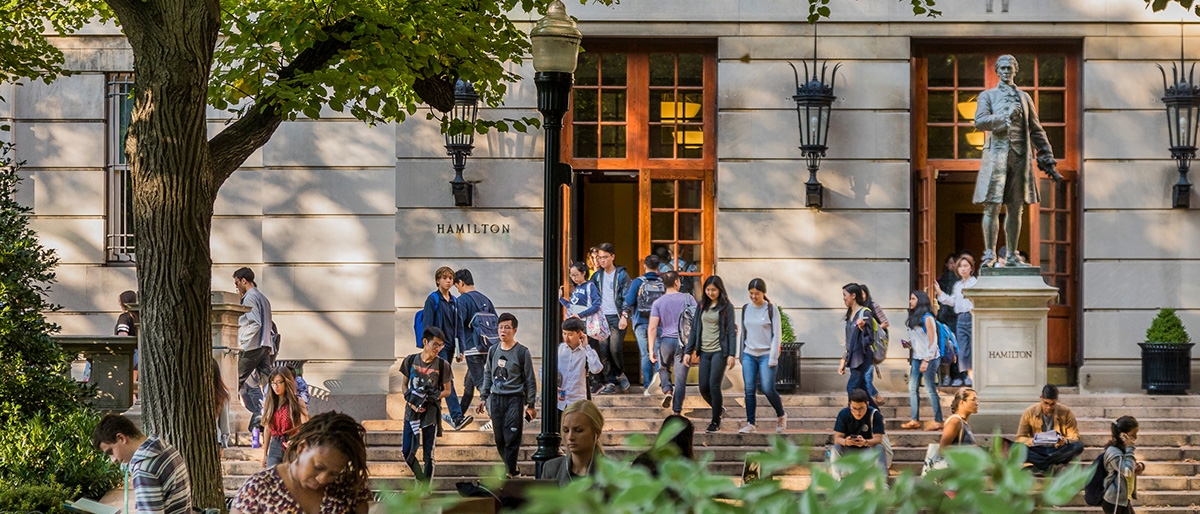
Moreover, Columbia College is committed to proactive self-assessment and action to ensure that every student is effectively supported in taking full advantage of our unique array of curricular and co-curricular offerings, from matriculation through graduation and beyond. The College pursues this priority in an holistic and integrative fashion: in how we bring students to Columbia, in the ways we encourage their intellectual and social flourishing, and in how we build an academic community that facilitates each student’s development toward reaching their full potential.
A Distinctive Shared Educational Experience
More than a century in the making, the Core Curriculum is the foundation of the undergraduate educational experience at Columbia College. It provides a shared experience to all of our students, prizing open inquiry and dialogue both in and beyond the classroom. Rather than uniformity or consensus, the Core prioritizes exposure to a diversity of viewpoints as students and faculty explore enduring texts and works of art, as well as novel ideas and developments; all of which sparks further intellectual curiosity and personal growth.
Through the Core Curriculum, Columbia College students encounter and grapple with perennial questions that have confronted humanity throughout the course of history. The ultimate goal of this enterprise is not simply to transmit knowledge, but rather to provide spaces and tools for students to explore and debate the stories, ideas, images, sounds, and discoveries through which we, in the face of all our differences, make ourselves intelligible to one another.